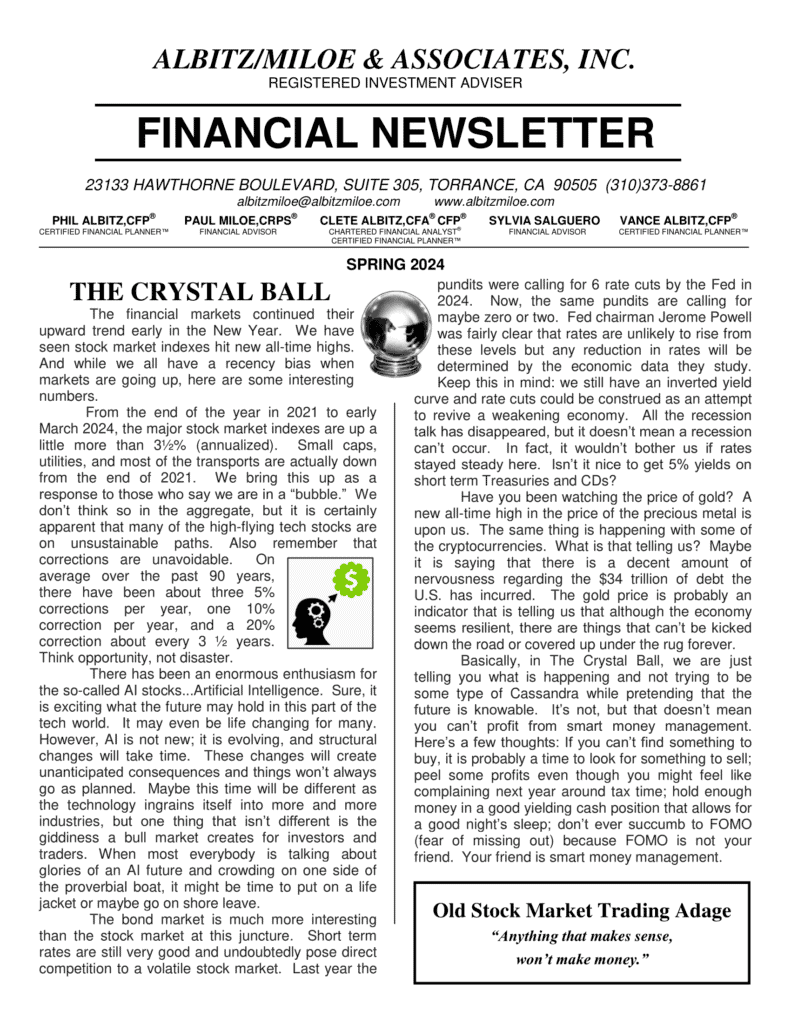Imagine walking into a bank and being told you had to pay them to loan them money. That is the basis of negative interest rates.
It sounds different and counterintuitive but it’s happening in parts of Europe and Asia as we speak. In fact, nearly $17 trillion in debt outstanding is now negative.
To describe the operational definition of negative interest rates, think of a typical fixed income transaction. You normally would buy a bond and the issuer pays you interest for the rights to use your money for a specific time period. When rates fall below zero, the opposite effect takes place. You actually pay the issuer to hold your cash for you. When would an investor be willing to pay this fee? When they feel all other choices are riskier. In ten years, it may cost even more to safeguard money. This is the reasoning behind negative interest rates.
Can you imagine taking a loan out to buy a car because it’s cheaper than paying cash? Now that’s a concept to wrap your head around.
Causing some confusion, the sudden talk of negative interest rates coincided with a rare event during our current inverted yield curve climate. It’s true an inverted yield curve often anticipates an economic downturn. Remember, negative interest rates are much different than an inverted yield curve. To learn more about the inverted yield curve, see Phil Albitz’s article here:
https://www.albitzmiloe.com/the-greatest-fear/
Now, despite all this good news, don’t go cheering for negative interest rates. First, they can lead to unpleasant and unexpected side effects. Second, things have to get pretty bad from an economic perspective to justify negative interest rates. And nobody wants to go there.
Why Lower Interest Rates in the First Place?
The widespread belief by economists and investors alike is: Weak economy -> rate cuts -> economic stimulus -> stronger GDP -> higher corporate profits -> higher stock prices. Low rates stimulate the economy and lead to spending and investment. From an economic standpoint, low rates reduces the cost of borrowing, lifting demand for things that are often bought on time or leased, like cars, homes and appliances. Further, low rates translate into lower monthly payments on floating-rate mortgages, leaving consumers more disposable income to spend. This is one reason a rate cut stimulates the economy.
Problems with Overextending Interest Rates to the Downside
There are many, but the biggest issue is investment in undeserving companies and shaky securities, encourage the use of excessive leverage, and create asset bubbles that eventually can burst. If interest rates become too low, central banks don’t have at their disposal as much of their best tool for stimulating economies: the ability to cut rates.
Jerome Powell and the Job of the FED
Jerome Powell and the Federal Reserve have an extremely difficult job. There are positives and negatives of changing rates; all of which can and do lead to second guessing. But is it the job of the Fed to sustain expansions and prevent recessions? Can they even do it? Are recessions avoidable or merely postponable? Should recessions occur naturally or be postponed unnaturally? Should we be happy to see the Fed trying to prolong the economic expansion and the bull market when they’re already the longest in history? Should it try to produce perpetual prosperity and permanently ward off a correction? Are there risks in its trying to do so? There is not a clear answer to any of these questions now; only hindsight will be 20/20.




